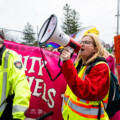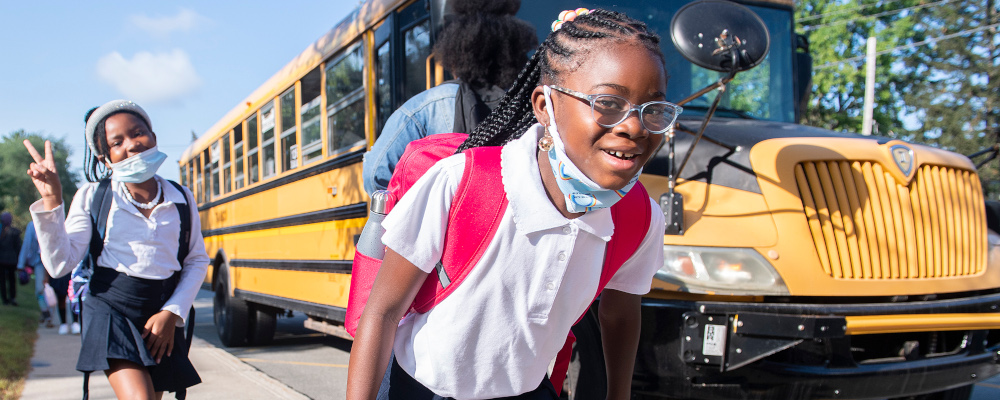Trustee Mike Ramsay of the Waterloo Regional District School Board served on that board for almost 30 years. Carolyn Burjoski, a teacher and librarian, worked for the board for 20 years. This past year, they were both cancelled by the school board’s leadership, who were furious when they raised concerns about Critical Race Theory-inspired teaching in the classroom and youth gender transition literature in elementary school libraries.
Ramsay, who happens to be the only black member of the school board, was censured and barred from board meetings. Burjoski was not allowed to finish reading from the book to which she objected. Apparently, it was inappropriate to read from that book in a public school board meeting, but appropriate to keep it in libraries directed at children. She was later suspended from her job and bullied into an early retirement by the school board. Rather than just apologizing to her, the school board will now spend tens of thousands of dollars on lawsuits, money taken away from classrooms and students in need.
There is a tendency in Canadian political debates to treat these kinds of episodes as sideshows, mere imports from the United States that are not really relevant north of the border. The story set out above may be bad, sure, but ultimately it’s an isolated incident, and we are sure that everything else is okay. In our country, the thinking goes, the adults are in charge, and any problems we hear about should be dismissed as isolated incidents that will be resolved by them.
I’m an elementary school teacher and a keen observer of news about education systems across the country. I think this complacent attitude is misplaced. In many places, there are not many adults left in the room. Many publicly funded school boards are run by progressive activists who are disconnected from the real needs of kids, parents, and teachers. Things really are as bad as the growing number of explicitly anti-woke candidates for school board trustee say they are. If anything, most parents and voters should be more concerned, and they should be more active in overseeing and directing the activities of local school boards across the country.
Let’s discuss some of the most concerning examples. Oakville Trafalgar High School in Oakville drew international attention after students leaked photos of their shop teacher wearing massive prosthetic breasts in class. I think most people assumed the teacher would be reprimanded or even fired. After all, it’s obviously unprofessional and a clear distraction from learning, and may even be unsafe given all the dangerous equipment in a shop class. However, as far as we know, this teacher was neither reprimanded nor told to dress more professionally by their employer. Instead, the school board claimed this behaviour was protected gender expression under the Ontario Human Rights Code. Stephen Lecce, the provincial education minister, eventually wrote a mildly concerned note to the Ontario College of Teachers, but it appears the local school board thinks the teacher did nothing wrong.
That’s one example, but it reflects the approach to gender embraced by many school boards. At a more systemic level, many schools instruct their teachers not to tell parents if their children socially transition into another gender while at school, including by not informing parents if teachers are calling their children by a different name than the one their parents gave them. This is despite the fact that (a) teachers’ authority to teach children is simply delegated to us by their parents, (b) we are not trained to diagnose gender dysphoria in young people or to suggest appropriate ways to treat it, and (c) we simply do not know or love our students the same way their parents do.
The question of the right way to help children with gender concerns is controversial and unsettled, and teachers are much less likely to be around to help kids pick up the pieces if something goes wrong than their parents are. Except in clear cases of abuse, teachers should support child-parent relationships, not undermine them, but many school boards’ policies discourage that.
On race, many educators are encouraged to use lessons that, while not quoting the work of Critical Race Theory scholars like Ibram X. Kendi and Peggy McIntosh, reflect their ideas. These lessons often include quizzes and long discussions on privilege, where children and teens are told to compare which students are better—or worse—off than their peers through an explicitly racial lens. Academic studies of such lessons suggest that they either have no effect on reducing racial animus, or, in some cases, that they may even increase racial animus, but they are still widely recommended to teachers by unions and various school officials boards.
Speaking as a teacher of a diverse group of children, I cannot imagine why I would spend valuable class time teaching my students that they need to spend more time focused on their racial differences. Insofar as race comes into my classroom, it comes in the celebration of diversity and in teaching about how racism—making judgements based on racial differences—is harmful, wrong, and should be avoided.
If these are some examples of what is going wrong in Canadian public schools, then a more heartening sign comes out of Vancouver, where a progressive school board was recently replaced by a more centrist one. In the wake of the Defund the Police movement, the Vancouver School Board (VSB) voted to end the School Liaison Officer program on the theory that policing was perceived as racist and harmful, despite increased concerns about violent crime across the region and in VSB schools. The VSB also voted to eliminate honours classes on the theory that providing bright public school students with selective instruction was bad for equity. The new school board majority was elected on a promise to reverse these policies, showing that many voters reject the excesses of progressive politics in education, even in large cities like Vancouver.
Across the country, parents and voters are increasingly expressing concerns about how race and gender are being addressed in our publicly-funded schools. This is a positive development. These schools are funded by taxpayers, so they should reflect broadly-shared values rather than the most cutting-edge views of the progressive movement.
As a teacher in a publicly-funded school, what I really want is for school leaders to focus less on these hot topics and more on the everyday issues in education. How do we help kids recover from the learning loss and physical and mental health damage caused by COVID restrictions? How do we use the cognitive science of learning, especially the Science of Reading, to improve students’ literacy and numeracy skills? How do we support new teachers in developing warm, caring, and effective classroom management techniques?
But to turn our attention to these real issues, we need to first clear away the distractions, including the attempts of activist progressive school boards to focus education on fundamentally adult debates on race and gender. If we can move on from those issues, then we return our focus to helping all our students learn and meet their potential.
Recommended for You

If Canada wants stronger communities, it must make volunteering easier

Why Ottawa’s proposed hate speech law is proving so controversial

After snubbing Don Cherry for over 40 years, the Order of Canada should drop politics and appoint him

‘Advancing political opinions’: How the media embarrassed itself covering the trans Tumbler Ridge shooter




